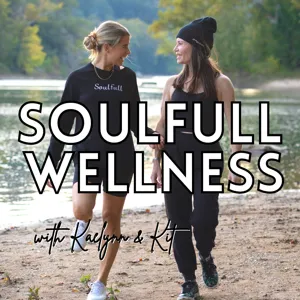Podcast Summary
Understanding the Importance of Sleep: Sleep is essential for physical, mental, and emotional health, with the brain undergoing significant activity during this time, including memory consolidation, emotional network recalibration, and decision-making enhancement. Prioritize sleep for optimal functioning and make it a priority for a healthier, more productive life.
Sleep is not a waste of time, but rather an essential process for physical, mental, and emotional health. During sleep, all major physiological systems undergo a dramatic overhaul, and the brain undergoes significant activity, including memory consolidation, emotional network recalibration, and decision-making enhancement. Sleep is crucial for optimal functioning, and it's important to understand its importance and prioritize it. Additionally, sleep follows a specific structure, with non-REM and REM sleep cycles occurring throughout the night, and the latter predominantly occurring in the second half. So, prioritize sleep, understand its importance, and make it a priority for a healthier, more productive life. And don't forget to check out the special offer from AG1 for a nutrient-dense supplement to support your overall health and wellbeing.
REM sleep as emotional first aid: REM sleep facilitates emotional healing and memory modification by taking the sharp edges off emotionally challenging experiences, allowing us to process and feel better about them the next day.
REM sleep functions as emotional first aid during the night, providing mental health therapy and processing difficult emotions experienced during the day. Previously, we believed that memories were fixed like a Word document after consolidation. However, recent research shows that every time a memory is recalled, it becomes open to modification, including updating its emotional context. REM sleep plays a crucial role in this process, acting as a nocturnal balm that takes the sharp edges off emotionally challenging experiences, allowing us to process and feel better about them the next day. Our brains respond to emotional demands by increasing REM sleep, highlighting its importance as a form of emotional convalescence. In essence, it's not just time that heals wounds, but the time spent sleeping and specifically during REM sleep that facilitates emotional healing and memory modification.
Sleep helps detach emotional charge from traumatic memories: During sleep, our brains can separate the emotional charge from traumatic memories, allowing us to remember the details without being overwhelmed by intense emotions.
During sleep, our brains have the ability to detach emotional charge from traumatic memories, allowing us to remember the details without reliving the intense emotions. Reconciliation therapy aims to help individuals reframe and neutralize difficult experiences, but for deeply traumatic memories, sleep plays a crucial role in healing. The process is likened to separating the bitter emotional rind from the informational orange. By doing so, we can remember the experience without being overwhelmed by the emotion, making it a powerful form of therapy. Sleep is indeed a bridge between despair and hope.
Prioritizing Sleep for Emotional Well-being: Regular sleep schedule, dark cool bedroom, avoid caffeine and alcohol, remove clocks, mental walk, keep tech out for better emotional health and reduced anxiety/depression.
Sleep is not just about reducing the risk of diseases like type 2 diabetes and cancer, but also about enhancing our emotional well-being. Prioritizing sleep can help us process our emotions better, reducing anxiety and depression. To get better sleep, establish a regular sleep schedule, create a dark and cool bedroom environment, avoid caffeine and alcohol, and remove clock faces from your bedroom. If you're struggling to fall asleep, try taking a mental walk to distract your mind. Lastly, keep technology out of your bedroom to improve the quality of your sleep. By making sleep a priority and implementing these simple habits, you can significantly improve your overall health and well-being.
Creating a wind-down routine before bed: Establishing healthy habits around phone use and a consistent wind-down routine can improve sleep quality, try standing to use phone instead of lying down, and invest time in calming activities like taking a bath, reading, or meditating.
Establishing healthy habits around phone use before bedtime and creating a consistent wind-down routine can significantly improve the quality of your sleep. Instead of using your phone in bed while lying down, try standing up to use it, and once you feel the need to sit, put it away. This simple hack can help reduce the temptation to engage in stimulating activities before sleep. Moreover, sleep is not an instant process like turning off a light switch. It's a gradual descent, and we need to prepare our minds and bodies for it. Establishing a wind-down routine, such as taking a bath, reading, or meditating, can help us transition smoothly into sleep mode. This approach is not only beneficial for children but also for adults. By treating sleep as a priority and investing time in creating a calming pre-sleep routine, we can enhance the quality of our rest and, ultimately, our overall well-being.




